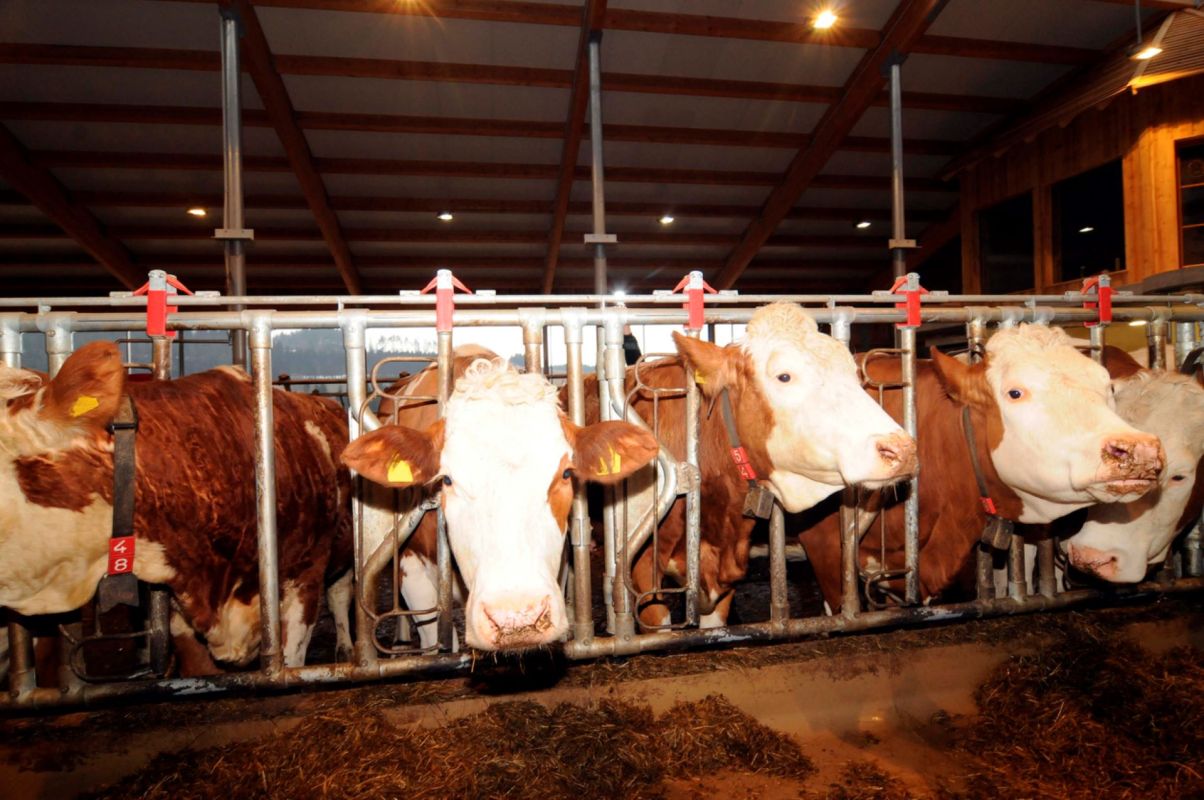The Swedish Environmental Protection Agency has called on the country's government to undertake further research into a seaweed additive that can reduce methane produced by cows.
According to The Guardian, it is hoped that further investigation into viability — in terms of both the science and support for farmers — could make the feeding of seaweed red algae to cows government policy.
"We believe that this [methane-reducing feed additives] can be a measure to reduce the methane from cattle in Sweden," climate analyst at the Swedish Environmental Protection Agency Emma Carlen said, per The Guardian.
"We don't have very many other measures that can have this effect within current production level. But we also believe it's still quite new and there's still more research to be done before we can really come in with a clear policy measure."
Cow burps are a climate problem. Can seaweed help?
— Jung (@betterworld_24) October 20, 2023
Changing the diet of cows might help them release less methanehttps://t.co/YGoCHLadkL pic.twitter.com/Gs8Umfo5e6
A report from the environmental organization revealed that the daily feeding of red algae to cattle and other animals bred for meat supply could reduce methane output by as much as 90%.
The work follows on from a discovery made in Australia, which found that seaweed can stop the microorganisms in a cow's stomach from producing the gas that is one of the most potent when it comes to global heating potential.
Agricultural air pollution is often the forgotten area of climate-positive actions, and Microsoft co-founder Bill Gates is perhaps one of the more surprising voices calling for it to be of renewed focus to prevent rising temperatures.
According to the United States Environmental Protection Agency, a single cow can produce as much as 264 pounds of methane gas a year. The 1.5 billion cattle raised for meat production across the globe can release 231 billion pounds of the gas into the atmosphere.
Since methane is 28 times as powerful across 100 years in terms of climate-heating potential when compared to carbon dioxide, it's clear that cattle are a serious problem.
While the seaweed additive is a promising line of investigation for mitigation measures, reducing meat consumption is an effective way to reduce associated pollution now. Scientific American cited a study that said if every U.S. citizen reduced the meat in their diet by 25%, it could help to reduce yearly planet-warming gases by 1%.
Until the seaweed additives are put to work, switching to plant-based foods every once in a while is a small change that could do wonders for the health of our planet.
Join our free newsletter for weekly updates on the coolest innovations improving our lives and saving our planet.









